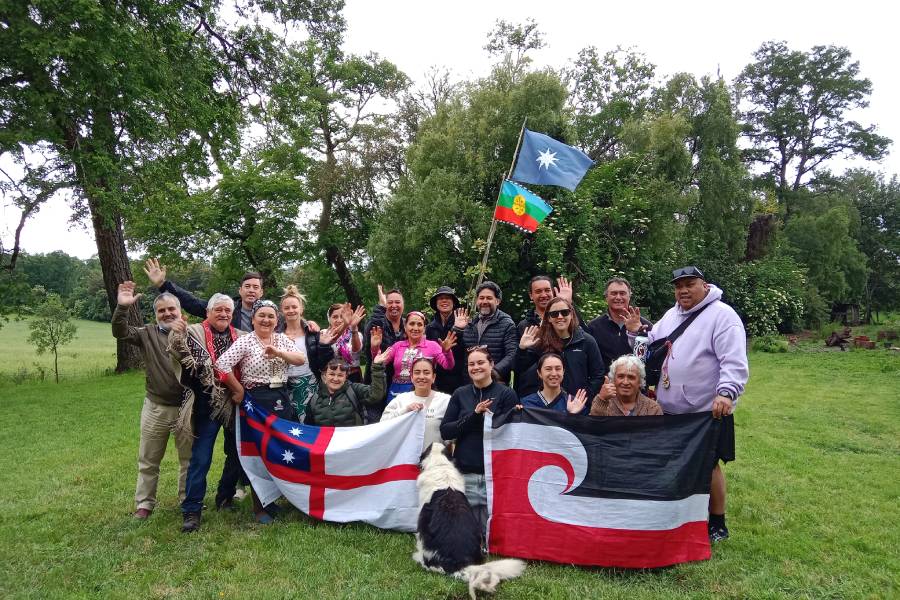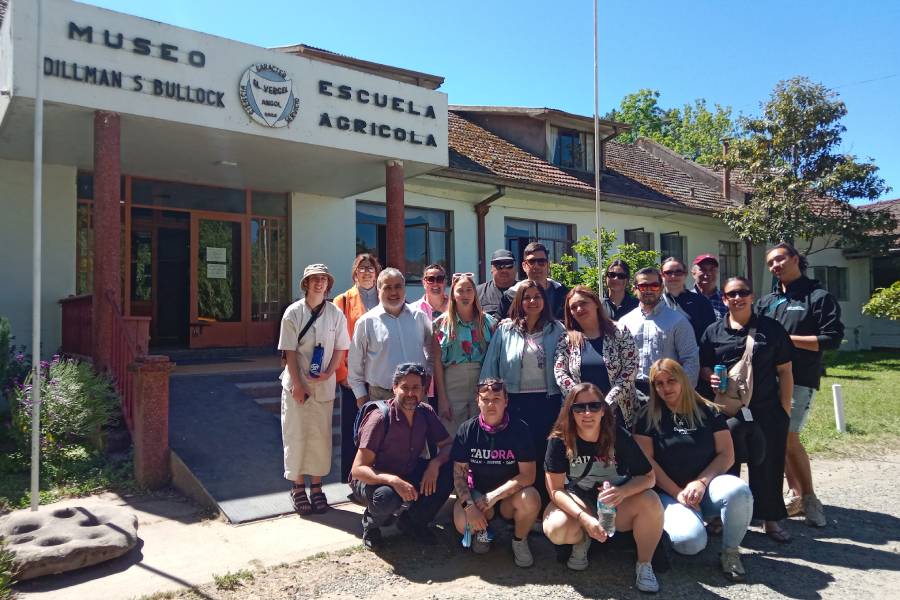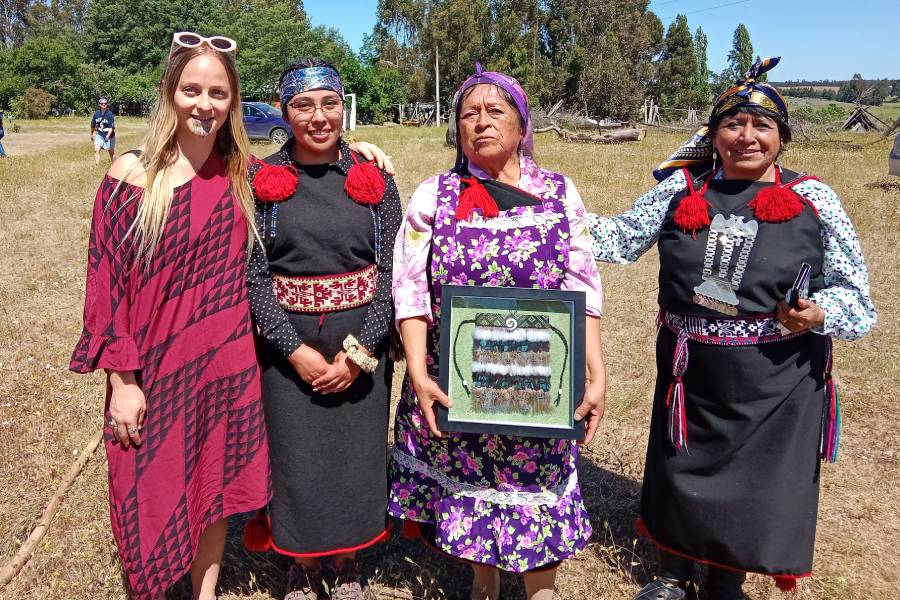|
During their stay, the young students actively participated in different activities, from traditional ceremonies to intercultural seminars, strengthening the connection between the university and the community. |
The director of the Angol Campus of Universidad de La Frontera (UFRO), Sergio Bravo Pino, described the visit of the 12 Māori students from Te Wānanga o Aotearoa and Victoria University of Wellington, New Zealand, as a significant and successful milestone. The purpose of the visit was to exchange experiences between the young Māori students and the local Mapuche communities and to discuss their history, culture and aspirations. Ariana Sheehan (in charge of Student and Weaver Promotion) and Dr. Mike Ross, the director of the School of Māori Studies, accompanied the group, which was received at UFRO Angol Campus by the director Sergio Bravo Pino, where they participated as guests in activities developed by the Office of Libraries and Information Resources and UFRO Angol Campus. “This meeting shows the importance of sharing and learning from our ancestral cultures, promoting diversity and mutual understanding, which are important outreach aspects,” Sergio Bravo explained. The visit was organised by Guillermo Williamson, the director of the Department of Education of the Faculty of Education, Social Science and Humanities. He explained that the delegation received a scholarship from New Zealand’s Prime Minister to come to our region and build a partnership between both countries, Chile and New Zealand, to establish future collaborations with universities, academics, students and indigenous peoples. CULTURAL, HISTORICAL AND HERITAGE EXCHANGE After the activities on the campus, the delegation visited the Dillman S. Bullock Historical Museum, located on the premises of the agricultural high school El Vergel, where they were able to discover ethnographic and archaeological pieces from pre-Columbian Chile and the Mapuche culture, as well as embalmed species of Chile’s endemic fauna. The delegation also visited the Juana Nahuelpi viuda de Huaiquín Community, located in the Los Sauces Commune, where the local community welcomed the students with typical ancestral games, such as the “Palín”, and other typical cultural activities. Afterwards, the students stayed at the Inarrumen Event Centre and Tourist Route, managed by the Mapuche Women’s Cooperative Nahuelbuta – Traiguén, in the Contreras Indigenous Community, located in the Nagche Territory in the commune of Traiguén. They also had a Nütram (conversation) with José Contreras, the Werkén of the community, about the Mapuche society and culture, and the ancestral and historical development, and talked to the women of the cooperative about their sustainable tourism venture. In addition, the delegation visited other places of cultural importance, such as the Renvi (cave), which served as a refuge for the Mapuche people during the occupation of the Araucania – activities that the young students of the Māori delegation highly valued and appreciated. “Our university is proud to be a space of intercultural exchange and we want to thank our Māori visitors for their active participation in this enriching exchange that goes beyond the academia, deeply immersing themselves in the local reality,” said the director of UFROs Angol Campus. “During their stay, the students actively participated in different activities, from traditional ceremonies to intercultural seminars, strengthening the connection between the university, the community and the surrounding nature. In addition to sharing traditions, one of the emphases was the importance of facing and overcoming common problems that have affected both cultures,” concluded Sergio Bravo Pino.
Written by: Pedro Andrade Araneda, UFRO Angol Campus
Translated by: UFRO Communications Office |







